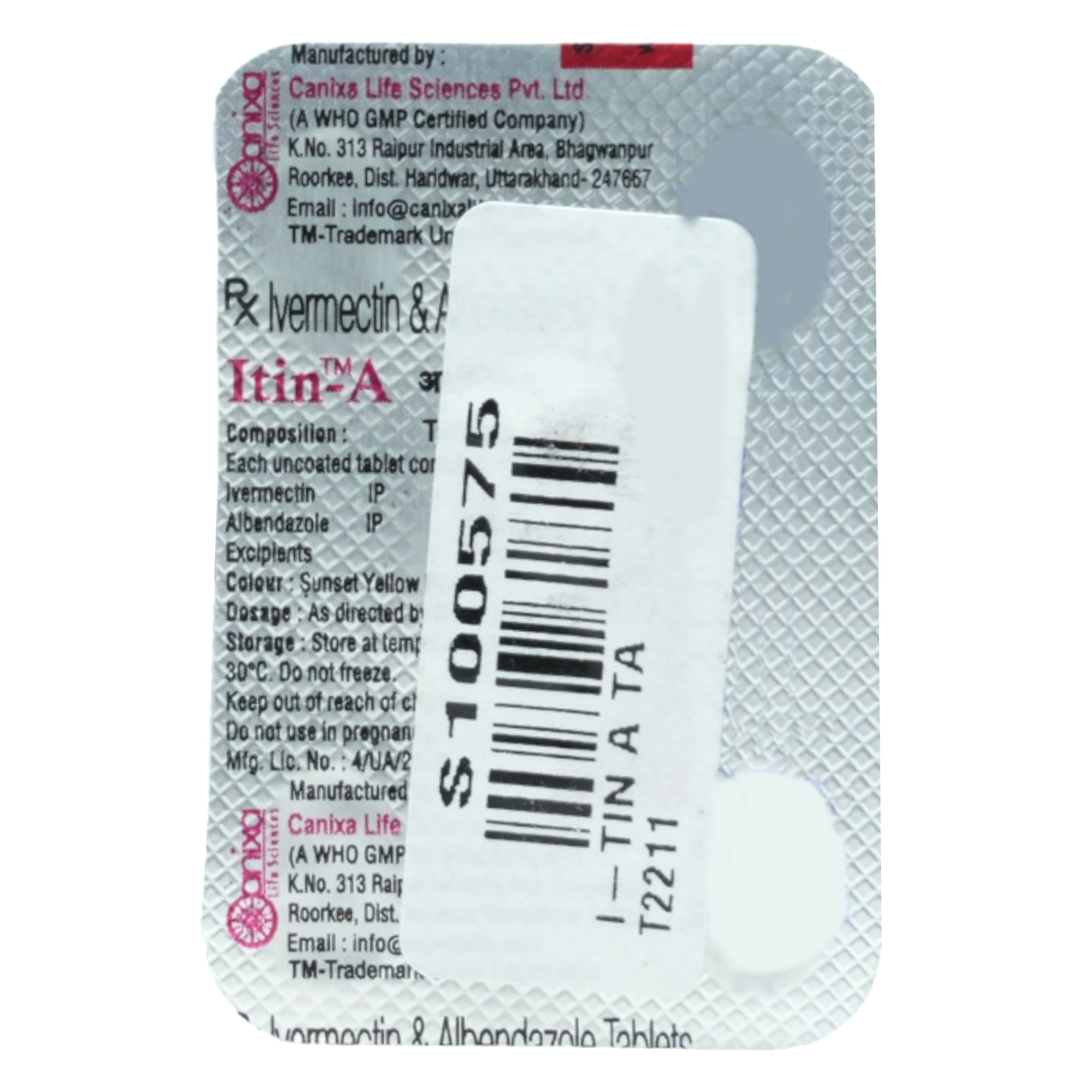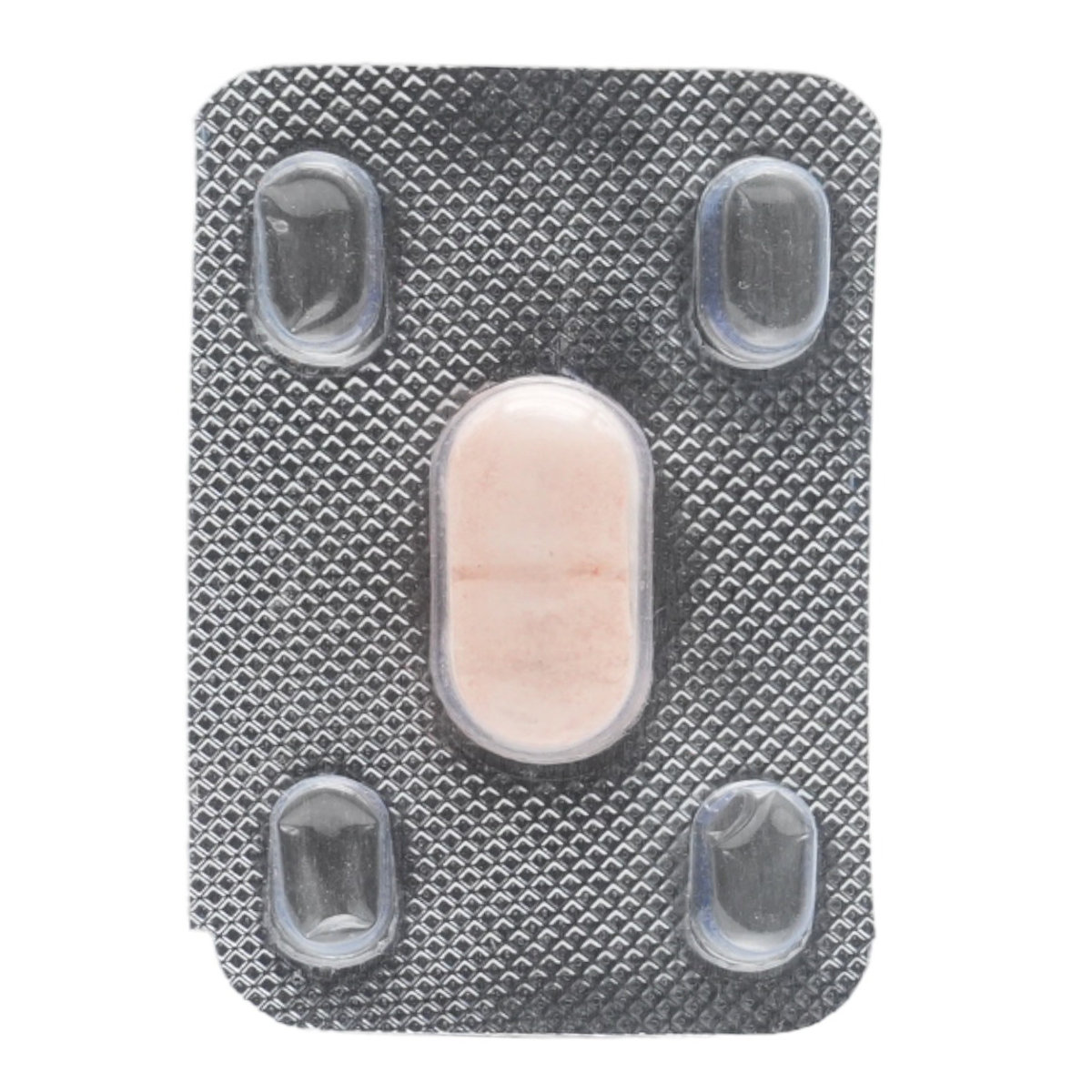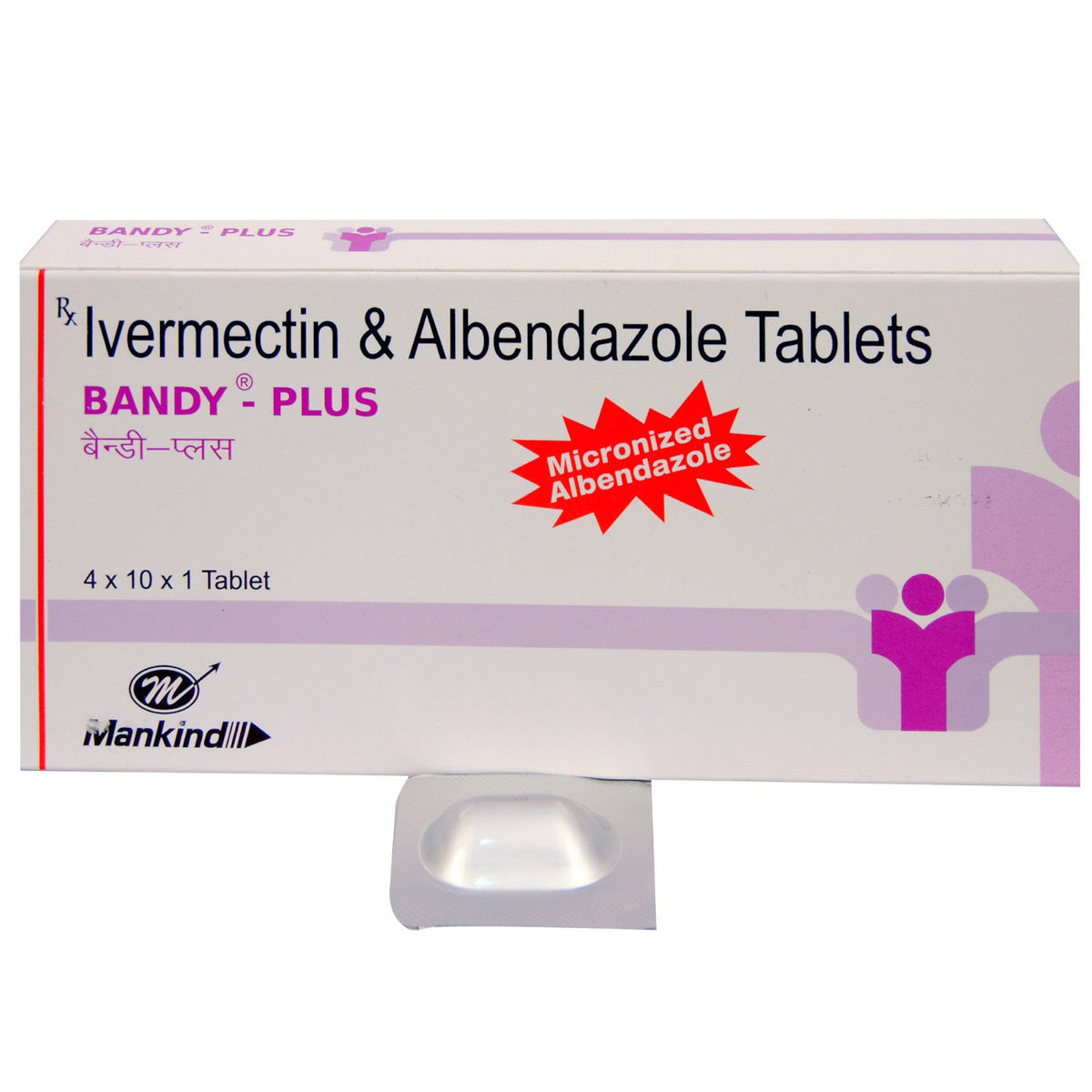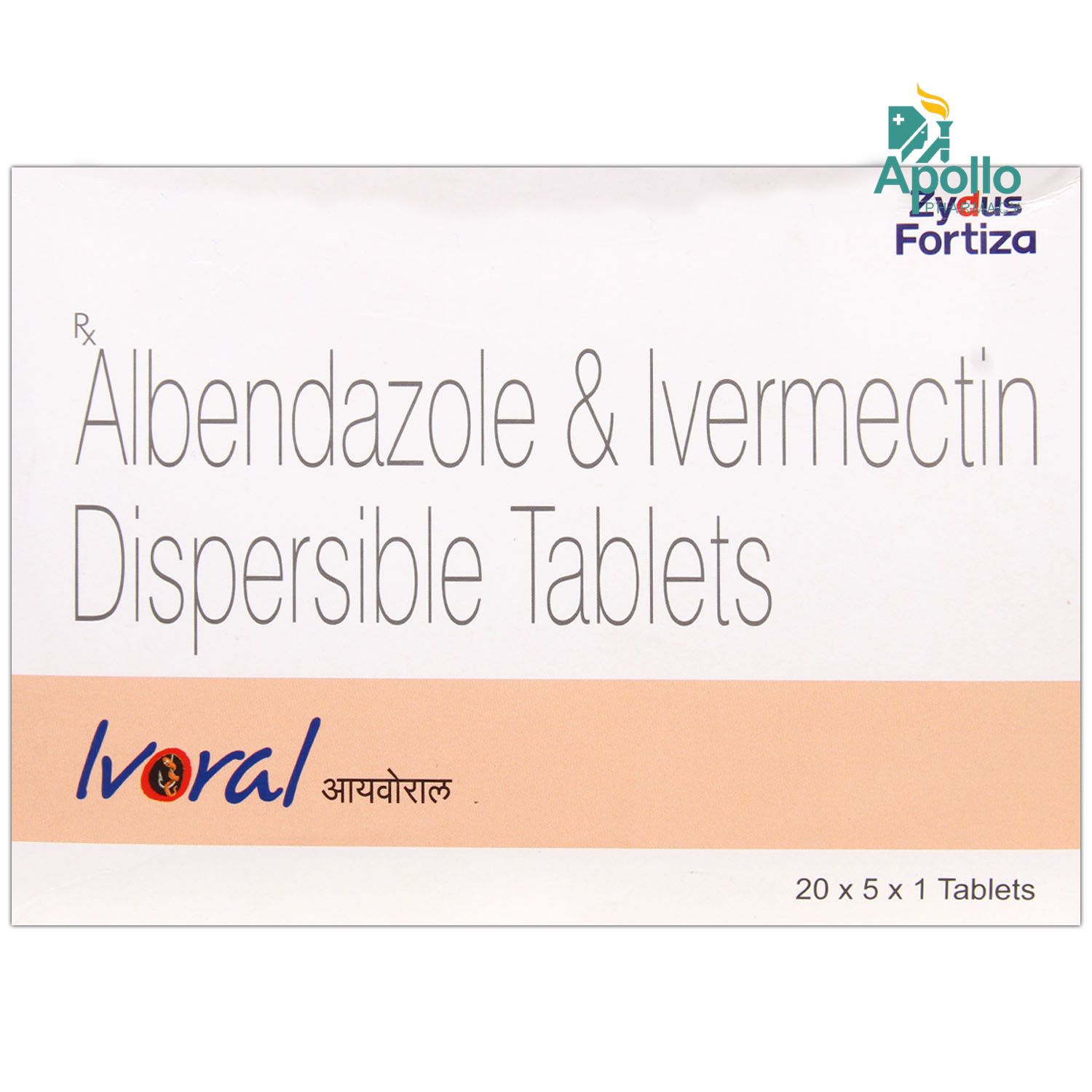Itin A Tablet


MRP ₹26
(Inclusive of all Taxes)
₹3.9 Cashback (15%)
know your delivery time
Provide Delivery Location
Composition :
Manufacturer/Marketer :
Consume Type :
Expires on or after :
Return Policy :

Secure Payment

Trusted by 8 Crore Indians

Genuine Products
Therapeutic Class
Country of origin
Manufacturer/Marketer address
Disclaimer
Alcohol
Safe if prescribed
Itin A Tablet may interact with alcohol and worsen the condition.
Pregnancy
Consult your doctor
Itin A Tablet is a category C drug and may cause toxic effects to the unborn baby. So, your doctor may prescribe this medicine if the benefits outweigh the risks.
Breast Feeding
Consult your doctor
Itin A Tablet may get excreted in the breast milk. So, your doctor may advise you to stop breastfeeding while taking this medicine.
Driving
Safe if prescribed
Itin A Tablet may cause dizziness and vision problems, so refrain from driving or operating heavy machinery while using this medicine.
Liver
Consult your doctor
Itin A Tablet should be used with caution in patients with liver diseases. Dose adjustments may be necessary.
Kidney
Consult your doctor
Itin A Tablet should be used with caution in patients with kidney diseases. Dose adjustments may be necessary.
Children
Safe if prescribed
Itin A Tablet should be used in children only if clinically needed.
Product Substitutes
About Itin A Tablet
Itin A Tablet belongs to the class of medications called ‘antihelmintic’ used to treat parasitic worm infections. Parasitic worm infections are intestinal worm infections that are caused by the ingestion of contaminated food and water. Itin A Tablet can be used to treat infections caused by roundworms, hookworms, threadworms, whipworms, pinworms, flukes, and other parasites.
Itin A Tablet contains ‘albendazole’ and ‘ivermectin’, which work by keeping the worm from taking glucose and depleting its energy levels, leading to its immobilization. Ivermectin can kill the parasites by acting on the nervous system. It starves the worms by inducing paralysis, consequently leading them to death.
You should take this medicine as prescribed by your doctor. The common side-effects of Itin A Tablet are stomach pain, nausea, vomiting, headache, dizziness, decrease in white blood cell count (leucopenia), vision problems, confusion, weakness, and difficulty walking. Inform your doctor if any of these side effects persist or get worsen.
You should not take Itin A Tablet if you are allergic to ‘albendazole’, ‘ivermectin’, or any other ingredients present in it. Before taking Itin A Tablet, inform your doctor if you have a medical history of meningitis, African sleeping sickness (an infection caused by the bite of tsetse fly in African countries), or illness that weakens the immune system HIV. It may make you more prone to infections, so maintain proper hygiene. It may cause dizziness, so refrain from activities that require you to stay alert.
Uses of Itin A Tablet
Medicinal Benefits Mweb
Key Benefits
Itin A Tablet contains ‘Albendazole’ and ‘Ivermectin’, which belong to the class of medications called ‘antihelmintic’. It is a broad-spectrum antibiotic used in the treatment of parasitic infections. It can kill the disease-causing worms and stop the spread of infection effectively. Albendazole interrupts the absorption of glucose by the worm leading to energy depletion. Ivermectin acts by paralyzing the worms, consequently leading them to death.
Directions for Use
Side Effects of Itin A Tablet
- Stomach pain
- Nausea
- Vomiting
- Headache
- Dizziness
- Decrease in white blood cell count (leucopenia)
- Vision problems
- Confusion
- Weakness
- Difficulty walking
Drug Warnings
Itin A Tablet may cause suppression of the bone marrow and cause anaemia. Inform your doctor if you have/had liver disease; if you have any surgery, including dental surgery. Consult your doctor immediately if you experience seizures, extreme tiredness, behaviour changes, blurred vision, trouble walking, or neck pain while taking Itin A Tablet. Consult your doctor if you notice unusual bleeding or bruising as you may bleed or bruise easily while taking Itin A Tablet. It may cause orthostatic hypotension (dizziness upon rising up quickly), so avoid standing up too quickly from a sitting or lying position.
Drug-Drug Interactions
Drug-Drug Interactions
Login/Sign Up
Taking Itin A Tablet with Cladribine can increase the risk of side effects.
How to manage the interaction:
Although taking Cladribine and Itin A Tablet together can evidently cause an interaction, it can be taken if a doctor has suggested it. If you have any of these symptoms, contact a doctor right away. These symptoms include fever, chills, diarrhea, sore throat, muscle aches, difficulty breathing, weight loss, and pain or burning when you urinate. Do not stop using any medications without talking to a doctor.
Co-administration of Itin A Tablet with Clozapine may increase the risk of infection.
How to manage the interaction:
Although there is a possible interaction between Itin A Tablet and Clozapine, you can take these medicines together if advised by your doctor. However, if you develop symptoms such as chills, diarrhea, fever, sore throat, shortness of breath, muscle pains, blood in phlegm, weight loss, red or inflamed skin, body sores, and pain or burning during urination, contact a doctor immediately. Do not discontinue the medication without consulting a doctor.
When Quinidine and Itin A Tablet are used together, Quinidine will increase the levels of Itin A Tablet, which may lead to side effects.
How to manage the interaction:
Although taking Itin A Tablet and Quinidine together can result in an interaction, it can be taken if a doctor has prescribed it. However, if you experience any unusual symptoms, contact a doctor immediately. Do not discontinue any medications without a doctor's advice.
When Itin A Tablet is taken with Ivacaftor, it can increase the risk of side effects.
How to manage the interaction:
Taking Itin A Tablet with Ivacaftor together can result in an interaction, but it can be taken if a doctor has advised it. Do not stop using any medications without a doctor's advice.
Drug-Food Interactions
Drug-Food Interactions
Login/Sign Up
Drug-Diseases Interactions
Drug-Diseases Interactions
Login/Sign Up
Drug-Drug Interactions Checker List
- PHENOBARBITAL
- BUTALBITAL
- CLONAZEPAM
- LORAZEPAM
- SODIUM OXYBATE
- VALPROIC ACID
- PRAZIQUANTEL
- DEXAMETHASONE
- CIMETIDINE
- THEOPHYLLINE
- CLOZAPINE
Habit Forming
Special Advise
Get up slowly and rest your feet on the floor for a few minutes before standing up to avoid orthostatic hypotension.
Diet & Lifestyle Advise
- Wash your hands regularly with soap and water, especially after using the toilet and while eating.
- Avoid eating raw fish and meat.
- Thoroughly cook meat before eating.
- Wash all fruits and vegetables properly before consuming them.
- Wash or reheat food that has been around for a long time.
- Avoid contact with soil that may be contaminated with faeces.
- Avoid foods that have been kept open in the markets as they can be contaminated.
- Drink boiled and purified water.
All Substitutes & Brand Comparisons
RX
Out of StockDenben Plus 6mg/400mg Tablet
₹15
(₹13.5 per unit)
42% CHEAPERRX
Out of StockElmactin 6mg/400mg Tablet
₹15
(₹13.5 per unit)
42% CHEAPERRX
Out of StockClearpar 6mg/400mg Tablet
Cubit Healthcare
₹47.4
(₹14.22 per unit)
39% CHEAPER
Buy best Infections & Infestation products by
Cipla Ltd
Macleods Pharmaceuticals Ltd
Alkem Laboratories Ltd
Lupin Ltd
Abbott India Ltd
Sun Pharmaceutical Industries Ltd
Mankind Pharma Pvt Ltd
Micro Labs Ltd
Aristo Pharmaceuticals Pvt Ltd
FDC Ltd
Intas Pharmaceuticals Ltd
Glenmark Pharmaceuticals Ltd
Ipca Laboratories Ltd
Torrent Pharmaceuticals Ltd
Zydus Healthcare Ltd
Biochem Pharmaceutical Industries Ltd
Zuventus Healthcare Ltd
United Biotech Pvt Ltd
Hetero Drugs Ltd
Emcure Pharmaceuticals Ltd
Alembic Pharmaceuticals Ltd
Indoco Remedies Ltd
Fusion Health Care Pvt Ltd
Dr Reddy's Laboratories Ltd
Leeford Healthcare Ltd
Cadila Healthcare Ltd
Wockhardt Ltd
Zydus Cadila
GlaxoSmithKline Pharmaceuticals Ltd
Morepen Laboratories Ltd
Blue Cross Laboratories Pvt Ltd
Cadila Pharmaceuticals Ltd
Converge Biotech Pvt Ltd
Elder Pharmaceuticals Ltd
Hetero Healthcare Pvt Ltd
Pfizer Ltd
AAA Pharma Trade Pvt Ltd
Gufic Bioscience Ltd
Mylan Pharmaceuticals Pvt Ltd
Corona Remedies Pvt Ltd
Wallace Pharmaceuticals Pvt Ltd
Apex Laboratories Pvt Ltd
Medishri Healthcare Pvt Ltd
Akumentis Healthcare Ltd
Alniche Life Sciences Pvt Ltd
Hegde & Hegde Pharmaceutica Llp
Veritaz Healthcare Ltd
Ranbaxy Laboratories Ltd
Koye Pharmaceuticals Pvt Ltd
Shreya Life Sciences Pvt Ltd
Overseas Health Care Pvt Ltd
Biocon Ltd
Indchemie Health Specialities Pvt Ltd
Medley Pharmaceuticals Ltd
Brinton Pharmaceuticals Ltd
J B Chemicals & Pharmaceuticals Ltd
Unifaith Biotech Pvt Ltd
Ajanta Pharma Ltd
Biochemix Health Care Pvt Ltd
Natco Pharma Ltd
Samarth Life Sciences Pvt Ltd
Unichem International
Laborate Pharmaceuticals India Ltd
Unipark Biotech Pvt Ltd
Zymes Bioscience Pvt Ltd
Indiabulls Pharmaceuticals Pvt Ltd
Neon Laboratories Ltd
Vasu Organics Pvt Ltd
DR Johns Lab Pharma Pvt Ltd
East West Pharma India Pvt Ltd
La Renon Healthcare Pvt Ltd
Medgen Drugs And Laboratories Pvt Ltd
Novartis India Ltd
Canixa Life Sciences Pvt Ltd
Icarus Health Care Pvt Ltd
Lincoln Pharmaceuticals Ltd
Celon Laboratories Pvt Ltd
Concept Pharmaceuticals Ltd
Klm Laboratories Pvt Ltd
Nicholas Piramal India Ltd
Systopic Laboratories Pvt Ltd
Yuventis Pharmaceuticals
Capital Pharma
German Remedies Ltd
Pristine Pearl Pharma Pvt Ltd
Unison Pharmaceuticals Pvt Ltd
Aurz Pharmaceutical Pvt Ltd
Clover Health Care Pharma
Kepler Healthcare Pvt Ltd
Allites Life Sciences Pvt Ltd
Auspharma Pvt Ltd
Intra Life Pvt Ltd
Jolly Healthcare
Linux Laboratories Pvt Ltd
Ozone Pharmaceuticals Ltd
Cachet Pharmaceuticals Pvt Ltd
Comed Chemicals Ltd
Delcure Life Sciences Ltd
Fresenius Kabi India Pvt Ltd
Khandelwal Laboratories Pvt Ltd
Frequently Bought Together









